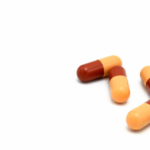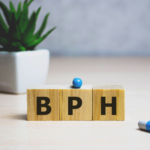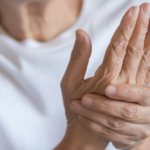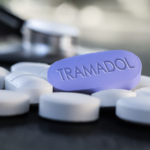
Astaxanthin is a chemical compound found naturally in certain plants and animals. (1) It has a characteristic reddish colour and is part of a group of micronutrients called carotenoids. Carotenoids are pigmented phytochemicals found in plenty of plants, bacteria, algae, and others, responsible for the bright orange, red and yellow colours primarily in vegetables, fruits, and many plant parts. They are typically synonymous with Vitamin A. (2)

How antioxidants work against free radicals
Biochemical processes occur in the human body cells when oxygen is used for the generation of energy. This process of oxidation generates potentially harmful waste products known as free radicals. (3)
Antioxidants are a set of agile molecules that repair the damage caused by harmful molecules called free radicals by inhibiting oxidation during metabolism. Antioxidant enzymes may be endogenous, or those produced by our body, or exogenous introduced in the body through food or supplements.

Astaxanthin – An essential antioxidant
Antioxidants act on free radicals by donating electrons to them. So technically, antioxidants reverse the process of oxidation. One such Antioxidant supplement, Astaxanthin, is in great demand. It is an antioxidant powerhouse and possesses anti-fatigue and anti-inflammatory properties, besides other health benefits, particularly cancer, free blood flow and lowering oxidative stress in smokers; and in people fighting obesity and even ageing.
Benefits of Astaxanthin
Astaxanthin, being a rich antioxidant, has many benefits:
- Helps to manage Diabetes – Oxidative stress caused by high blood sugar is the leading reason pancreatic β-cells die or malfunction. Little or no insulin is produced, which regulates blood sugar levels. Astaxanthin’s antioxidant properties can help protect pancreatic beta cells by reducing oxidative stress and sugar toxicity in the blood. It improves the metabolism of sugar.
- Helps with Heart Disease – It enhances blood flow and helps curb bad cholesterol. High LDL (bad cholesterol) and low HDL (good cholesterol) in the body is a bad combination and risk factor for cardiovascular disease.
- Helps to Reduce Blood Pressure – High cholesterol in the blood can clog the arteries, escalating blood pressure. Astaxanthin as an antioxidant helps reduce bad cholesterol and therefore prevent hypertension. It relaxes the walls of the arteries.
- Reduces High Cholestero l– Cholesterol is produced by the liver and used to make cell membranes, Vitamin D and some hormones. It is not water-soluble and has excess deposits on the walls of blood vessels. As an antioxidant, Astaxanthin reduces high cholesterol levels.
- Astaxanthincan improve the immune system – by naturally reducing oxidative stress. It acts on free radicals causing oxidative stress by donating electrons to them. A sound immune system helps to fight the body against diseases.
- Helps Manage Ulcers – oxidative stress in the gut often creates a conducive environment that allows pylorito thrive and cause Ulcers. Astaxanthin helps to reduce oxidative stress.
- Boosts Skin Care – UV sun rays can be harmful to the skin. When applied topically, the phytochemical also promotes young-looking, healthy skin. It also helps in inhibiting the onset of skin cancer.
- Helps and Prevent Fatty Liver Disease – it acts as an antioxidant that stays on top of oxidative stress in the liver. By getting rid of excess radicals caused by metabolic disorders, astaxanthin helps restore normal liver function and avoid liver damage.
- Boosts Physical Performance – heavy exercises like swimming, running, and weight lifting often accumulates stress hormone cortisol and increase metabolic free radicals’ release. This oxidative stress can cause fatigue, tiredness, and sore muscles during and after the exercise. It can be reduced by intake of astaxanthin.
- Reduces and Prevents Brain Damage from Stroke – Astaxanthin works by stimulating blood flow, reducing blood pressure, relaxing blood vessels, and alleviating oxidative stress.
- Reduces the Risk of Developing Alzheimer’s – is a neurodegenerative disorder with symptoms as serious memory lapses, dementia, confusion, erratic behaviour, difficulty thinking, and other symptoms that can affect your daily life. Astaxanthin. It can help reduce neurodegeneration and recover some of the neurological functions. (4)
Other health benefits such as relief of pain symptoms related to Rheumatoid Arthritis, alleviation of menopausal symptoms, and helping with male fertility are augmented by astaxanthin. (4)
Conclusion
With claims accrued to its health benefits, astaxanthin ranks highly on the scale of powerful antioxidants, earning the acronym “King of Carotenoids” for itself. (5)
Shubham Pharmachem: Engaging with healthcare audiences, globally
As a Merchant Export Organisation, Shubham Pharmachem Pvt. Ltd. is always in perfect harmony with such global initiatives in healthcare. The Indian brand is vertically integrated into the pharmaceutical industry to provide the best service to its clients due to its extensive and exhaustive research. The organization’s products include Active Pharmaceutical Ingredients (API), herbal extracts, nutraceutical ingredients, and cosmetic ingredients.
A quintessential and well-leveraged network of sales interfaces has helped to leverage the business with an increase in turnover by 400% in 4 years only.
For more information, visit www.shubham.co.in
Disclaimer:
Shubham Pharmachem’s blog posts have been written with the information gathered from approved medical journals and websites online. Our research and technical team strive to provide relevant information through such articles. We strongly advise readers to not consume or administer any medication without prior consultation with their doctor.
References:
- https://www.webmd.com/vitamins-and-supplements/astaxanthin
- https://healthcareweekly.com/astaxanthin/
- https://www.medicalnewstoday.com/articles/301506
- https://healthcareweekly.com/astaxanthin/
- https://algamania.com/astaxantine-the-king-of-carotenoids/?lang=en




